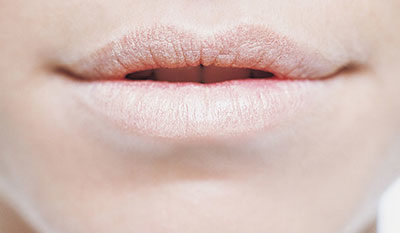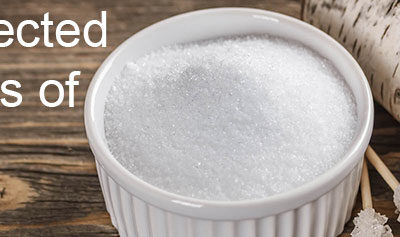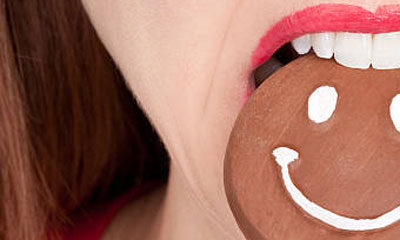Let’s first talk about what xylitol is. Xylitol is a sugar alcohol. The suffix “itol” is how you can most often identify a sugar alcohol. Ironically, sugar alcohols are neither sugar nor alcohol. They are basically water-soluble solids found in plants and berries whose carbohydrates are altered through a chemical process. These common sugar alcohols like sorbitol, maltitol, and erythritol are derived from cornstarch.
Xylitol is actually manufactured from birch wood, corncobs, and the stalk residue from sugar cane. Sugar alcohols are low calorie sweeteners used instead of sugar in many foods.
So, is Xylitol Good for Diabetics?
The simple answer is: Yes. Xylitol (and other sugar alcohols) are natural. They are not artificial sweeteners like Splenda or Aspartame. The body also breaks them down rather than just letting them pass through.
Diabetes is the inability to handle glucose, which is the body’s primary energy food, but which we get altogether too, too, much of in our diets. Anything that allows us to decrease the amount of glucose (found in processed starchy foods , table sugar, and especially in our high-fructose corn syrup sweetened soft drinks) in our diets helps us cope better with diabetes. A recent study using xylitol on diabetic rats showed that it helped to normalize all of the laboratory markers for that condition.
Xylitol sweeteners are available for purchase at most stores, and are popular in health food stores. These products can be used the same as typical table sugar. Xylitol reacts the same as table sugar in baking, cooking, or dissolving in liquids. The only place xylitol should not be substituted is for recipes that require a hard crack, like a crème brulee.
So what are the Downfalls of Sugar Alcohols?
Sugar alcohols, like xylitol, are not calorie free. Xylitol, however, does contain 40% fewer calories than table sugar. Sugar alcohols also can cause digestive discomfort, including bloating, gas, and a laxative effect, for many people when eating too much. And dogs can’t tell it’s not sugar so they respond with more insulin and the drop in sugar that results can be lethal. KEEP XYLITOL AWAY FROM YOUR DOGS.
If you have never consumed a sugar alcohol before, it’s important to start in moderation. Many people never have a problem with using these sweeteners, but others are much more sensitive. Typically up to 20 grams per day is fine for individuals, but again, we recommend starting in moderation to see how xylitol or any other sugar alcohol effects your digestion.
Related Articles
Indoor air pollution solutions
Breathing Easy Indoors By Jane Wooley. Think pollution is all about filthy air outdoors? You’d be wrong. In recent years, more and more scientific evidence has shown that it’s actually the air inside our homes and buildings that are the most seriously polluted....
Keep your Nose Clean
by Jane Sandwood Every day you breathe up to 30,000 times. Now imagine you’re breathing in polluted air. When we think of toxins in the air, we immediately think of our lung health. But your nose is the first organ that has to deal with polluted, harmful air. Even...
What is Xylitol?
What is xylitol? Well it is pretty amazing, if we do say so ourselves. It is an alternative sweetener that has been popular in food products since the 1960s. On top of being a sweetener, it has shown to have a significant reduction in cavities when used...
How to Relieve of Dry Mouth with Xylitol
What is Dry Mouth and What Causes It? Dry mouth is caused by the salivary glands in the mouth not performing properly, or, more commonly, by mouth breathing secondary to nasal congestion. Poor salivation can be caused by medications, cancer treatments,...
Five Unexpected Benefits of Xylitol
Xylitol has a lot of benefits, but it’s most commonly known as a sugar substitute. Xylitol is usually made from corncobs or from trees like birch. It’s similar to sugar in sweetness but contains 40% fewer calories. Here are four unexpected things you might...
Prevent Tooth Decay with Sweets
Did you know your sweet tooth could actually make your dentist happy? And we don’t mean because you’ll be paying them to fix your cavities, we mean, you could stop having cavities. It’s true; a sweetener can be the answer to your dental health problems. Xylitol is a...









